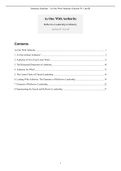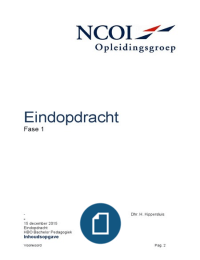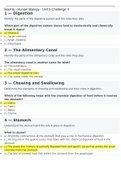Samenvatting
Summary As One With Authority - Jackson W. Carroll
- Instelling
- Vrije Universiteit Amsterdam (VU)
This document is a complete summary of the revised edition of Carroll's important work "As One With Authority" (2011). Carroll provides a sociological and theological perspective on pastoral authority by describing both the ultimate and penultimate bases for authority. In addition he argues that "r...
[Meer zien]







